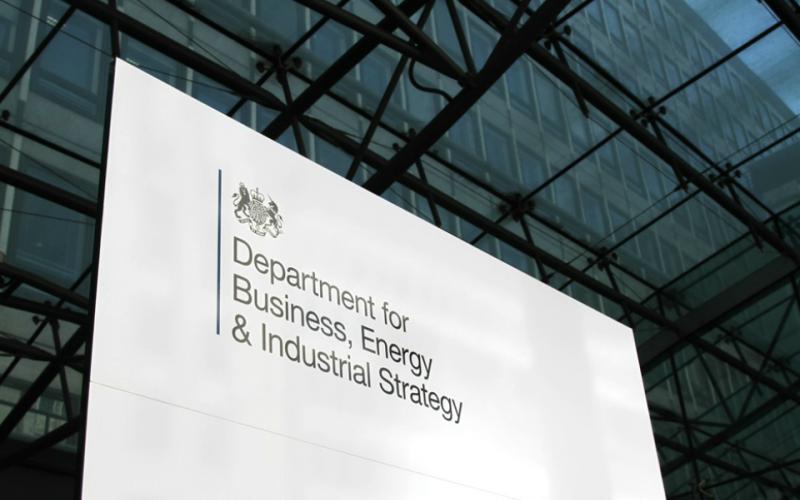A call for evidence on how to enable long-duration energy storage is the final document in a deluge of policy papers released by the government yesterday (20 July).
Examining the barriers in the current market, how they might be addressed and the risks associated with potential interventions, the Department for Business, Energy and Industrial Strategy (BEIS) is to use the information to help it establish the need for large-scale long-duration electricity storage (LLES), collect evidence on the potential pipeline of storage projects, determine the case for intervention and consider the sort of mechanism that would be appropriate.
Describing electricity storage as an “essential” source of low carbon flexibility that currently faces barriers limiting its deployment, BEIS said its own analysis shows around 30GW of short duration storage and flexible demand alone may be needed in 2050, however this does not include longer duration storage.
It defines LLES projects as being able to store and discharge energy for over 4 hours, and up to days, weeks and months, and deliver power of at least 100MW when required. This definition is one of the elements it is seeking views on.
It is also seeking views on whether the electricity system requires and will benefit from LLES delivering a range of services including providing stability services, providing storage over different durations, supporting network constraints and reducing the need for additional low carbon generation by better utilising existing sources of renewable generation.
Whether there will be a need for a range of different LLES technologies is also an area being looked at in the call for evidence.
BEIS is also looking for information on potential LLES developments, asking for details of specific LLES projects that could begin development in the next five years.
Barriers to LLES were another area outlined in the call for evidence, with BEIS having engaged with academics, developers, investors and industry bodies to understand more about this.
It found that challenges associated with financing large-scale storage were particularly prevalent, with stakeholders stating that the high capital costs associated with some LLES developments combined with long lead times and uncertainty over novel technologies can make it difficult to attract investment when combined with a lack of bankable or forecastable revenues.
BEIS is therefore seeking views on if these issues are acting as barriers to LLES deployment, and if there are any other barriers not mentioned. Additionally, it is looking for information on the types of capital available for LLES and from what types of investors and if the financing challenges primarily concern raising debt or also equity.
The call for evidence highlighted a number of markets LLES currently participates in that are undergoing reforms that could be beneficial. This included:
- The stability pathfinder and other ESO services trialling new services for grid stability and network constraints
- The UK Investment Bank which is to target low-carbon infrastructure projects
- The Capacity Market, which the government is to soon publish a call for evidence for to gather evidence on how it might support the participation of new build projects that have construction times which are longer than the time between the main capacity auction and delivery
- Network competition and network charging
- Transmission Constraint Licence Condition, with Ofgem having published an open letter clarifying how storage is treated under this condition
BEIS is looking for information on the extent to which these reforms might support the investability of LLES, any reforms that could take place in current markets to improve investability and any proposed market changes that could make it more difficult to finance LLES.
Lastly, BEIS is also seeking views on whether it is necessary to try and accelerate the deployment of LLES, even if stronger signals for longer-duration storage may not develop until the late 2020s/2030s.
The call for evidence is to close on 28 September 2021. It follows the government announcing a competition worth up to £68 million in the Ten Point Plan to accelerate the commercialisation of first-of-a-kind longer duration energy storage through the £1 billion Net Zero Innovation Portfolio.
Alongside the call for evidence on LLES, the government yesterday also published a call for evidence on vehicle-to-X technologies, a consultation on establishing an independent Future System Operator and an updated Smart Systems and Flexibility Plan alongside the Energy Digitalisation Strategy.






